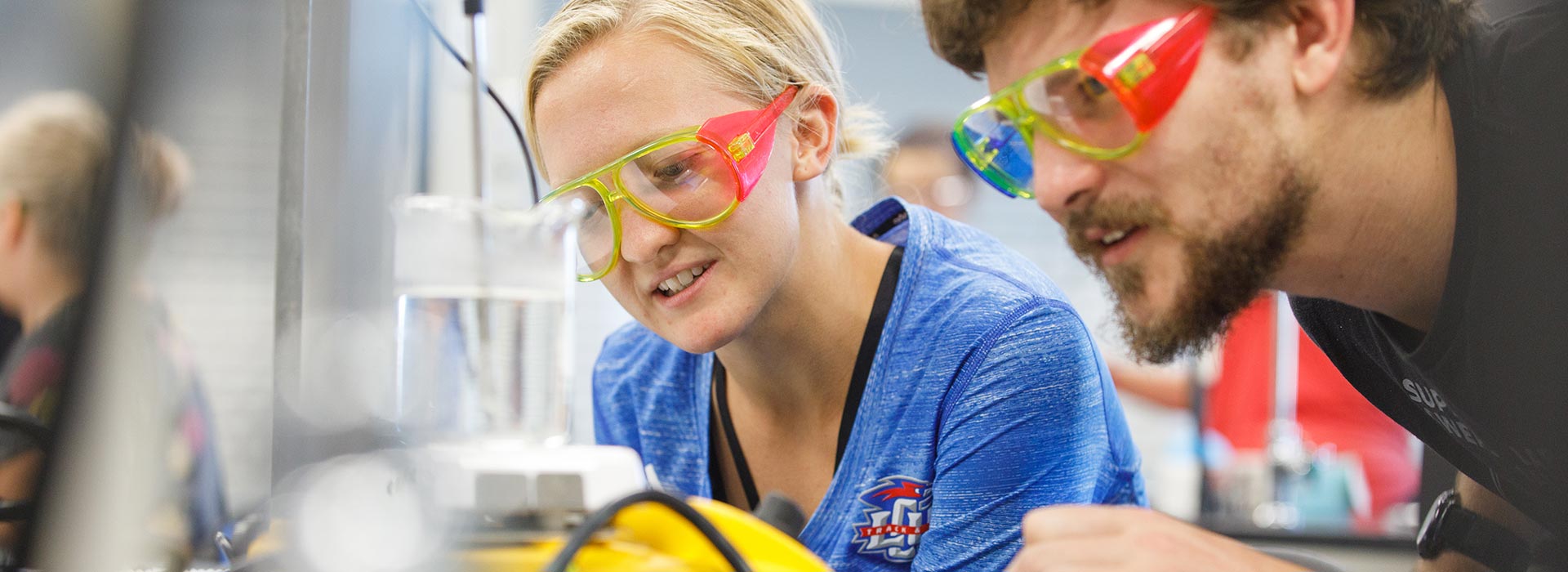
Undergraduate research is an inquiry or investigation conducted by undergraduate students that makes an original intellectual or creative contribution to the discipline.

To initiate, support, and promote undergraduate research projects within and across disciplines, contributing to the academic life of the university by encouraging mentoring opportunities for faculty and students.
Assistant Professor
Department of Natural Sciences
Ling Science Center, 121J
806.720.7710
Doug.Swartz@LCU.edu
You can contact the director or advisory council members for information regarding support for research presentations at conferences, Scholars Colloquium research awards, and faculty mentor stipends.
Find out more about the conference or how to become a participant.
You can learn about potential research opportunities by contacting one of your professors, your academic advisor, and the Rhodes Family Institute Director or Advisory Council members.
Yes, getting involved in undergraduate research can start at any stage of your time here at LCU.
Undergraduate research opportunities involve all academic disciplines.
Yes, that is a possibility. Contact your faculty mentor or your advisor for more information about potential opportunities to obtain academic course credit for undergraduate research projects.
Participating in an undergraduate research project provides a number of opportunities for students. Experience in conducting research provides preparation for acceptance into graduate or professional school, and such accomplishments can supplement your resume and improve your career prospects. Moreover, practical application of the theories learned in class enhances your understanding of these concepts and increases your learning. Also, completed projects may open doors to grants, scholarships, or awards.
Each undergraduate research project proceeds under the guidance of a faculty mentor. Faculty may approach students regarding participation in an undergraduate research opportunity, or students often approach faculty members to ask whether or not they would be interested in mentoring research or helping develop ideas. Some of our ongoing, current research projects may provide opportunities for students to become involved.
An abstract is a brief summary of the research project. Usually, the abstract includes a problem statement or thesis, a methodology or theoretical framework for the project, the results of the study or analysis, and a conclusion. Separately, a bibliography provides the sources used for your literature review. At LCU’s Scholars Colloquium, abstracts are required for both posters and presentations. To request funding to attend a state or national conference (such as NCUR), you must apply through the LCU's Institute for Undergraduate Research. The Institute’s Advisory Council on Undergraduate Research will evaluate all abstract submissions and determine potential funding for scholarly travel.
Review the National Conference on Undergraduate Research (NCUR) guidelines, which can be found at the CUR website. Be sure to follow the format required by the professional meeting that you plan to attend. You might also consider the following resources:
When submitting for our own Scholars Colloquium, for NCUR, or for some other academic conference, please submit an electronic version of your abstract to Barbara Slate. All abstracts will then be passed on to the Institute’s Advisory Council on Undergraduate Research for evaluation according to the following basic criteria:
- Significance of Research: How significant is the overall impact of the results/conclusions? How does the project contribute to overall scholarship?
- Project Maturity: Is the project sufficiently mature to have results/conclusions? Is the paper or poster completed? Have you attached it or a picture of it to this abstract?
- Clarity of the Project Description: How well does the student use written communication to describe the project in the required abstract? This evaluation will also include organization and grammar.








